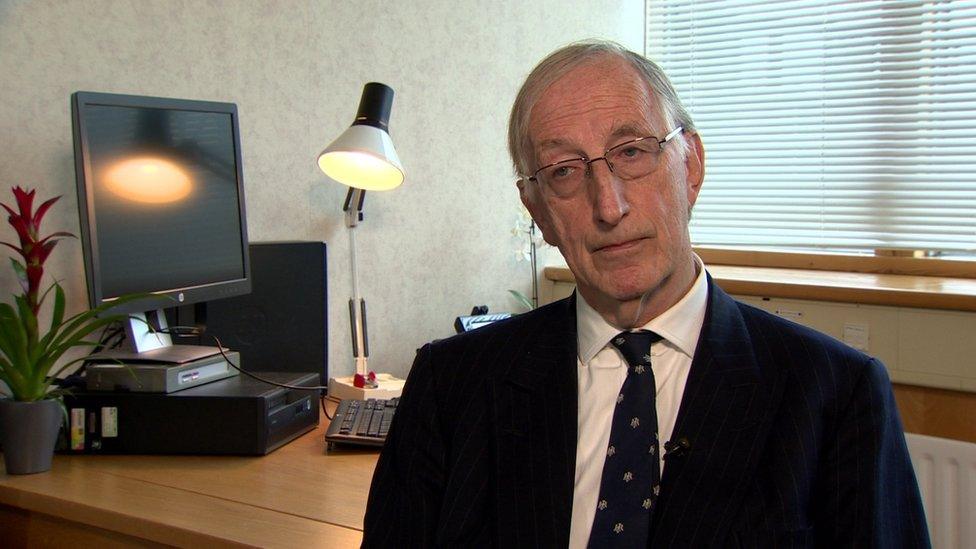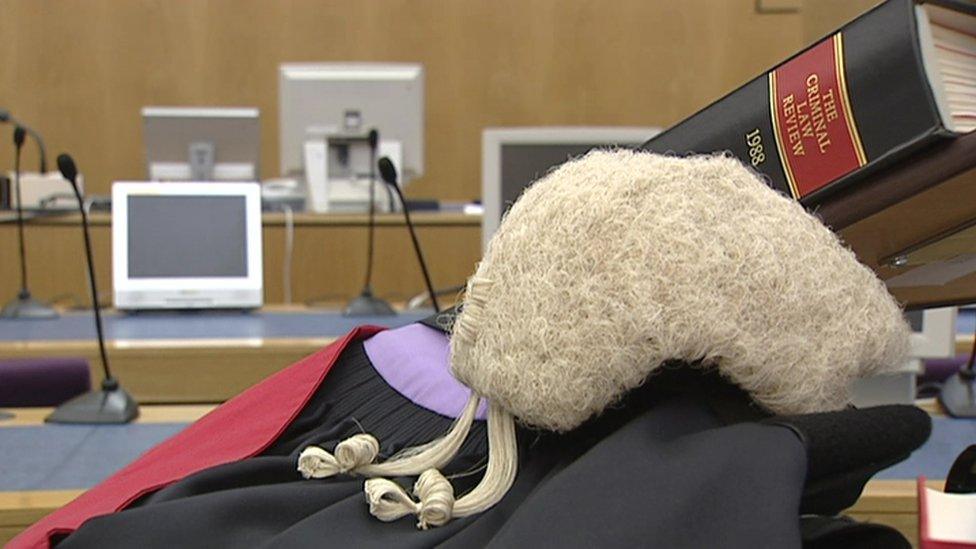Jimmy Savile victim says new NI law could protect sex offenders
- Published

A woman abused by Jimmy Savile has said new laws in Northern Ireland offer a potential "protection" for sexual offenders and risk silencing survivors.
The law stops the publication of claims against alleged perpetrators until 25 years after they die, unless they have been convicted or charged during their lifetime.
Savile was investigated by detectives across the UK but was never charged.
BBC News NI understands the law faces a legal challenge from media groups.
Samantha Brown was abused by Savile from the age of 11.
She said some survivors were too afraid to speak out while their abusers were still alive and there was a chance they could lose that opportunity after their death.
"I think it's a complete protection clause," she told BBC Radio Ulster's Good Morning Ulster programme.
"These people who abuse children, young people and vulnerable people - they don't just do this to one person.
"They do it to multiple people and let's be fair how much of this gets to court anyway?
"You can't silence people…you'd be in silence for 25 years."

Jimmy Savile was never charged
It is now widely accepted that Savile used his celebrity status to prey on hundreds of people, many of them children.
It was only after the DJ and television presenter's death that his crimes were made public.
Savile was the subject of investigations by a number of different police forces and some were subsequently criticised for their handling of those complaints.
The new legislation - which was introduced by officials at Stormont after a review of sexual offences - only applies to crimes allegedly committed in Northern Ireland.
Savile died in 2011 and because the new laws also apply retrospectively he would be entitled to anonymity until 2036 if any allegations had been made against him within the jurisdiction.
Officials in Stormont's Department of Justice were unable to tell us if we could legally report whether or not he had been investigated by police in Northern Ireland.
They refused to respond directly to a number of questions from BBC News NI.
Instead the department issued a statement which said: "A notice of intended legal proceedings has been received with regard to this matter.
"Accordingly, at this time it would not be appropriate for the department to comment on the issue."
The review of offences which led to the new legislation was led by retired judge Sir John Gillen.
The Justice (Sexual Offences and Trafficking Victims) Act Northern Ireland 2022 is a wide-ranging bill which contains a series of changes to the law.

Sir John Gillen's report endorsed 253 changes
Sir John did recommend providing anonymity for alleged offenders before they were charged.
However he never suggested extending that beyond their death.
"My heart bleeds for somebody who has been [falsely] accused of a heinous crime," said Ms Brown.
"I'm so sorry for you but I'm also sorry for the multitude of people that aren't believed, [the case] hasn't gone to court and it's wrecked their lives.
"What is the meaning for the 25 years?"
It is not clear who introduced the part of the legislation that extends the protection for more than two decades after an alleged offenders death and Stormont's Department of Justice was unable to tell us.
Sir John Gillen refused a request to be interviewed saying he believed it was "inappropriate" given the pending legal proceedings.
Alliance Party leader Naomi Long was justice minister when the bill was introduced and a spokesperson for her party pointed out there were ways of challenging the right to anonymity.
"This legislation explicitly allows for anyone wishing to publish material relating to a suspect after their death to apply to the court to do so, and we would encourage any journalist or publisher to avail of this provision where publication is in the public interest," they said.
"If the party held the justice ministry again in any restored executive, we would of course be open to reviewing the impact and any concerns about unintended consequences raised in relation to this or any other piece of legislation, as is good practice."
If you have been affected by any of the issues in this article, help and advice is available at BBC Action Line.
Related topics
- Published28 September 2023

- Published8 May 2019
